
Sergei Mikhailovich Eisenstein was a Soviet film director, screenwriter, film editor and film theorist. He was a pioneer in the theory and practice of montage. He is noted in particular for his silent films Strike (1925), Battleship Potemkin (1925) and October (1928), as well as the historical epics Alexander Nevsky (1938) and Ivan the Terrible. In its 2012 decennial poll, the magazine Sight & Sound named his Battleship Potemkin the 11th-greatest film of all time.

Battleship Potemkin, sometimes rendered as Battleship Potyomkin, is a 1925 Soviet silent drama film produced by Mosfilm. Directed and co-written by Sergei Eisenstein, it presents a dramatization of the mutiny that occurred in 1905 when the crew of the Russian battleship Potemkin rebelled against its officers.
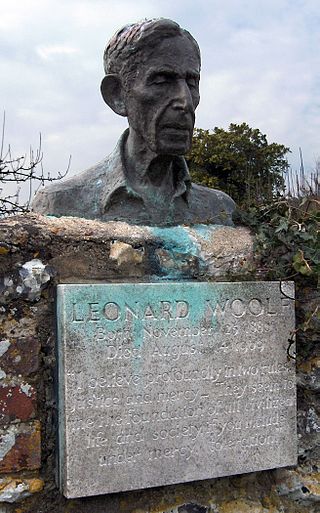
Leonard Sidney Woolf was a British political theorist, author, publisher, and civil servant. He was married to author Virginia Woolf. As a member of the Labour Party and the Fabian Society, Woolf was an avid publisher of his own work and his wife's novels. A writer himself, Woolf created nineteen individual works and wrote six autobiographies. Leonard and Virginia did not have any children.
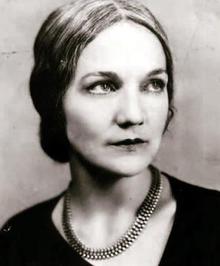
Katherine Anne Porter was an American journalist, essayist, short story writer, novelist, poet and political activist. Her 1962 novel Ship of Fools was the best-selling novel in America that year, but her short stories received much more critical acclaim.

Edward M. Hirsch is an American poet and critic who wrote a national bestseller about reading poetry. He has published nine books of poems, including The Living Fire: New and Selected Poems (2010), which brings together thirty-five years of work, and Gabriel: A Poem (2014), a book-length elegy for his son that The New Yorker called "a masterpiece of sorrow." He has also published five prose books about poetry. He is president of the John Simon Guggenheim Memorial Foundation in New York City.
Harcourt was an American publishing firm with a long history of publishing fiction and nonfiction for adults and children. The company was last based in San Diego, California, with editorial/sales/marketing/rights offices in New York City and Orlando, Florida, and was known at different stages in its history as Harcourt Brace, & Co. and Harcourt Brace Jovanovich. From 1919 to 1982, it was based in New York City.

Ruth Stone was an award-winning American poet.
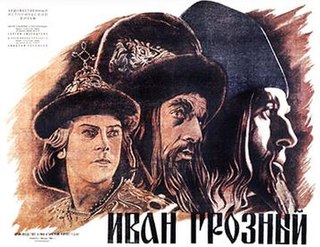
Ivan the Terrible is a two-part Soviet epic historical drama film written and directed by Sergei Eisenstein. A biopic of Ivan IV of Russia, it was Eisenstein's final film, commissioned by Soviet leader Joseph Stalin.
James MacGregor Burns was an American historian and political scientist, presidential biographer, and authority on leadership studies. He was the Woodrow Wilson Professor of Government Emeritus at Williams College and Distinguished Leadership Scholar at the James MacGregor Burns Academy of Leadership of the School of Public Policy at the University of Maryland, College Park. In 1971 Burns received the Pulitzer Prize and the National Book Award in History and Biography for his work on America's 32nd president, Roosevelt: The Soldier of Freedom.

Soviet montage theory is an approach to understanding and creating cinema that relies heavily upon editing. It is the principal contribution of Soviet film theorists to global cinema, and brought formalism to bear on filmmaking.
Jay Leyda was an American avant-garde filmmaker and film historian, noted for his work on U.S, Soviet, and Chinese cinema, as well as his documentary compilations on the day-to-day lives of Herman Melville and Emily Dickinson.
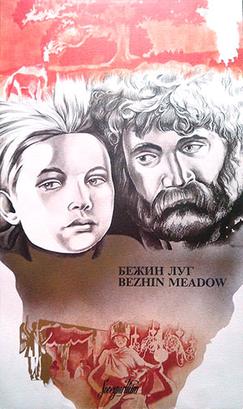
Bezhin Meadow is a 1937 Soviet propaganda film, famous for having been suppressed and believed destroyed before its completion. Directed by Sergei Eisenstein, it tells the story of a young farm boy whose father attempts to betray the government for political reasons by sabotaging the year's harvest and the son's efforts to stop his own father to protect the Soviet state, culminating in the boy's murder and a social uprising. The film draws its title from a story by Ivan Turgenev, but is based on the life of Pavlik Morozov, a young Russian boy who became a political martyr following his death in 1932, after he denounced his father to Soviet government authorities and subsequently died at the hands of his family. Pavlik Morozov was immortalized in school programs, poetry, music, and film.

Michael Henry Heim was an American literary translator and scholar. He translated literature from eight languages, including works by Anton Chekhov, Milan Kundera, and Günter Grass. He received his doctorate in Slavic languages and literature from Harvard in 1971, and joined the faculty of UCLA the following year. In 2003, he and his wife used their life savings ($734,000) to establish the PEN Translation Fund.

This is a bibliography of U.S. congressional memoirs by former and current U.S. senators.

The T. S. Eliot bibliography contains a list of works by T. S. Eliot.
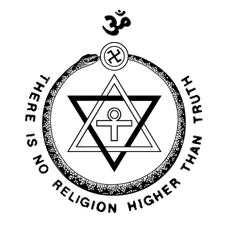
John Algeo (1930–2019) was an American academic, trained as a linguist, and the author of one of the standard American textbooks on the history of the English language.
A list of books and essays about Georges Méliès:
Nina Agadzhanova (Shutko) (27 October / 8 November 1889 – 14 December 1974) was a Soviet revolutionary, screenwriter, and film director. She is most widely recognized for writing The Year 1905, the original screenplay from which Battleship Potemkin was created.
Ronald Bergan was a South African-born British writer and historian. He was contributor to The Guardian and lecturer on film and other subjects as well as the author of several books including biographies.
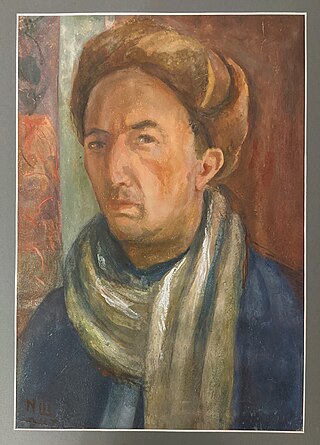
Iossif Aronovich Spinel. (Russian: Иосиф Аронович Шпинель) was a Russian painter, graphic artist and scenic designer of more than 60 films including Ivan the Terrible and Alexander Nevsky by Sergei Eisenstein.